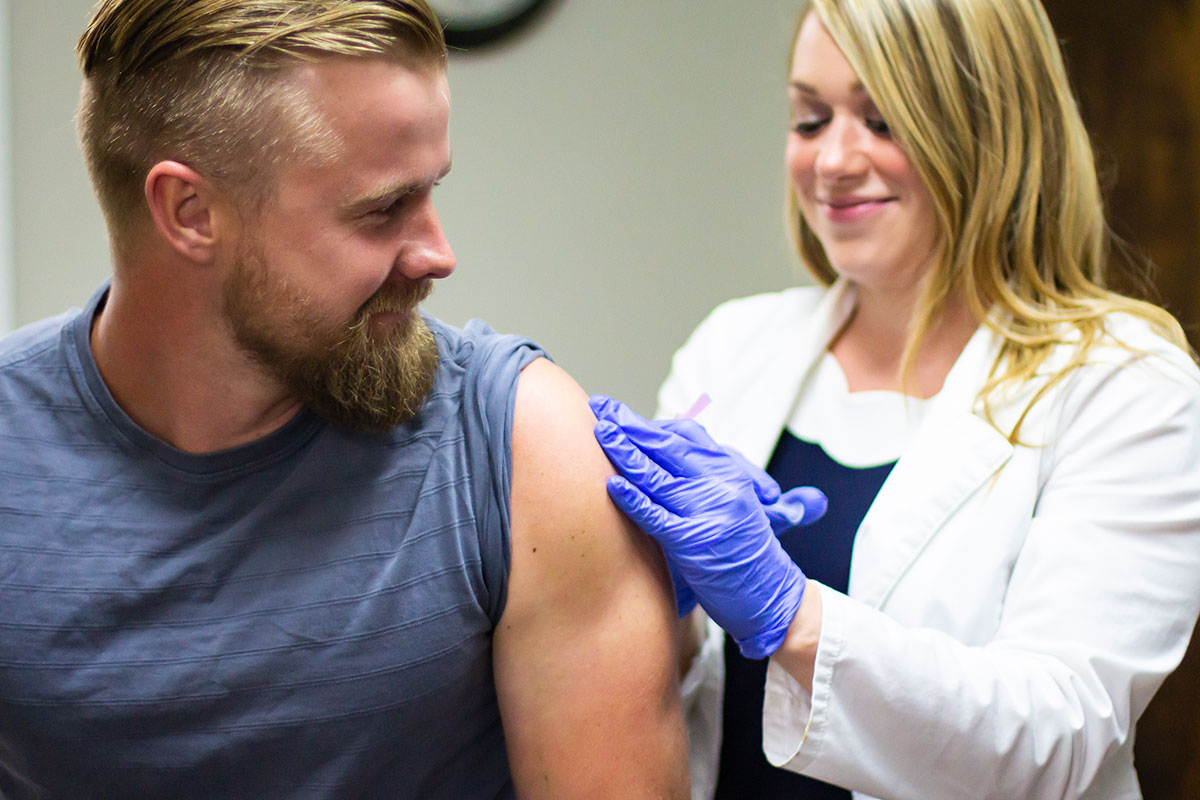How Do Joint Injections Work?:
Joint injections are non-invasive when compared to surgical intervention because it involves a series of simple injections. These contain substances meant to provoke a healing response in the surrounding tissue. They also include analgesics to reduce pain during injection.
Once the substance enters the injured tissue, it provides specific stimulation that tells your body to naturally heal the area. Essentially, joint injections trick your body into repairing itself. It does this by creating new layers of the surrounding tissue. For this approach, specifically, these are ligament or tendon fibers.
Most consultations involve patients struggling with back, knee, or neck pain. This procedure has an excellent prognosis for these areas. It’s important to note that this treatment is also effective when applied to smaller joints. One study showed that joint injections were effective and safe with pain relief and joint movement for finger joints.
What do Joint Injections Treat?
Joint injections primarily focus to resolve pain and instability related to various joints in your body. A common reason to seek this treatment involves sports injuries. Tennis, soccer, and football players are the most frequent patients for this therapy.
More specifically, joint injections are meant to alleviate aches, inflammation, discomfort, and injuries in tendons and ligaments. These tissues connect your bones to their respective muscle groups. What makes this procedure so popular is that it has both immediate and long term benefits.
If you’re looking for a fast solution regarding joint pain, you can expect pain relief during the first or second visit. But, in order to guarantee a permanent healing process for your body, you need to follow up with the subsequent visits recommended by your doctor.
Do I need Joint Injections?
If you’ve recently suffered from a sports, work, or other injury affecting joints in your body, joint injections are an outstanding treatment option. Contact us, and we’ll set up your first appointment, help relieve any related pain, and set up the following visits to properly administer the treatment.
This procedure also deals with repairing serious damage, or displacement, to ligaments and tendons in the body. Even if you’re not suffering from pain, and instead struggling with proper movement, joint injections can help.
What Should I Expect?
Joint injections can help solve joint mobility, pain, and discomfort. It’s a simple, almost painless, and fast process. Before you get started, you should contact your doctor. It’s important to confirm a diagnosis and follow necessary check-ups beforehand.
The injection itself involves penetration of the skin and some tissue. But, because the substance contains analgesics, you can expect a similar sensation to that of a shot. Temporary pain relief should start a few hours after your first visit. Permanent changes to mobility and discomfort are apparent after three weeks.

